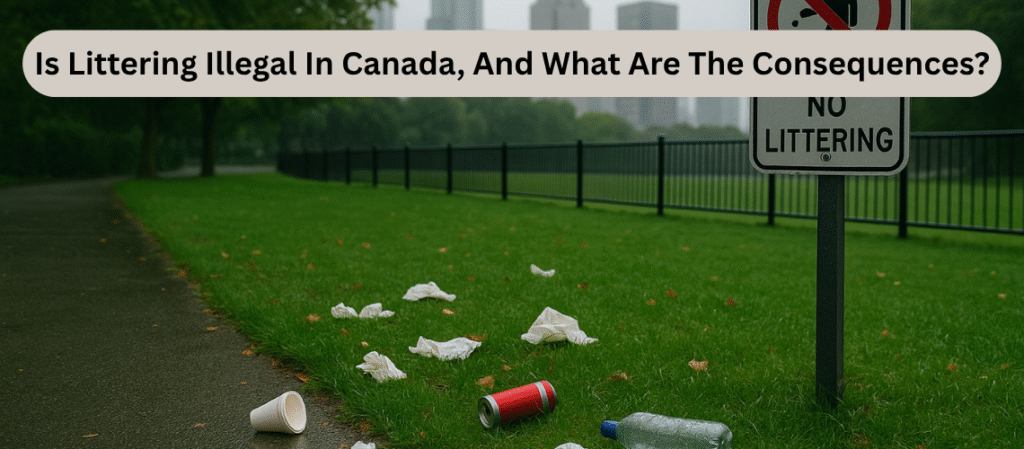People know Canada for its clean cities, breathtaking landscapes, and its commitment to environmental preservation. Sadly, littering has become a problem in Canada; not only does it affect the country’s natural beauty, but it also affects public health. If you have ever carelessly tossed a sweet wrapper on the roadside or seen someone throw a trash bag in the bushes, you may wonder littering is illegal in Canada. The short answer is yes, and the consequences can be much greater than expected.
Canada has local bylaws and provincial penalties to curb illegal dumping and littering. Suppose you are a visitor or a resident. In that case, it is necessary to know what constitutes littering, what the fines are, especially those associated with littering, and possible means of disposing of waste. This blog will outline the laws, illuminate the penalties, and propose innovative legal solutions for junk removal. This way, you can remain alert and not get into unwanted trouble.
How Much Is the Fine for Littering In Ontario?
The province of Ontario imposes a fine ranging from $60 to over $500 for littering. Propositionally lower tiers fines are given for lower levels of littering. For instance, tossing your vehicle’s coffee cup holder through the window would be capped at $60. On the other side, more grievous violations like illegally dumping trash in bags into a vacant lot would incur much larger fines.
Like Toronto or Ottawa, other municipalities also tend to issue internal bylaws to penalize offenders. Different regions differ in penalization schemes, so some courts may impose fines effectively, judging violations of laws as cumulatively repeated offenses. Public health and safety are critical, and this is a significant reason for the fine for littering in Ontario.
Is Illegal Littering The Same As Dumping Illegal Littering?
Though the prohibited actions are similar, the severity of illegal dumping in Ontario is much greater than that of simple littering. Using a shopping center ground as a dumpster for offloading massive waste like old broken furniture, torn wall panels, kitchen appliances, washer and dryer removal, etc. qualifies as illegal dumping. For example, throwing waste away from an old washer and dryer behind a building or into a forested area would fall under unlawful dumping. This is considered environmental damage and adds to the municipalities and taxpayers responsible for the cleanup.
Who to Call to Help You Legally Dispose of Junk in Ontario?
To avoid unwanted fines and ensure responsible waste management, hiring a junk removal company is safe. These companies specialize in following the policies and guidelines set around waste management in Canada. Whether it’s a garage sale or moving to a new place, they will ensure that your items are recycled, donated, or disposed of properly without penalty.
When it comes to large and heavy items such as a piano, seeking the help of a professional piano removal service is critical. Trying to dump these items illegally can lead to severe fines and dangerous consequences.
Conclusion
The repercussions of littering are severe, and the environmental consequences are indisputable. There are ways to manage all kinds of waste, whether a tiny wrapper, an appliance, or even a piece of old furniture. Use these options to avoid licensed junk removal services instead of damaging the environment or facing legal fines. We all stepped to the plate and worked to keep Canada beautiful for generations.

